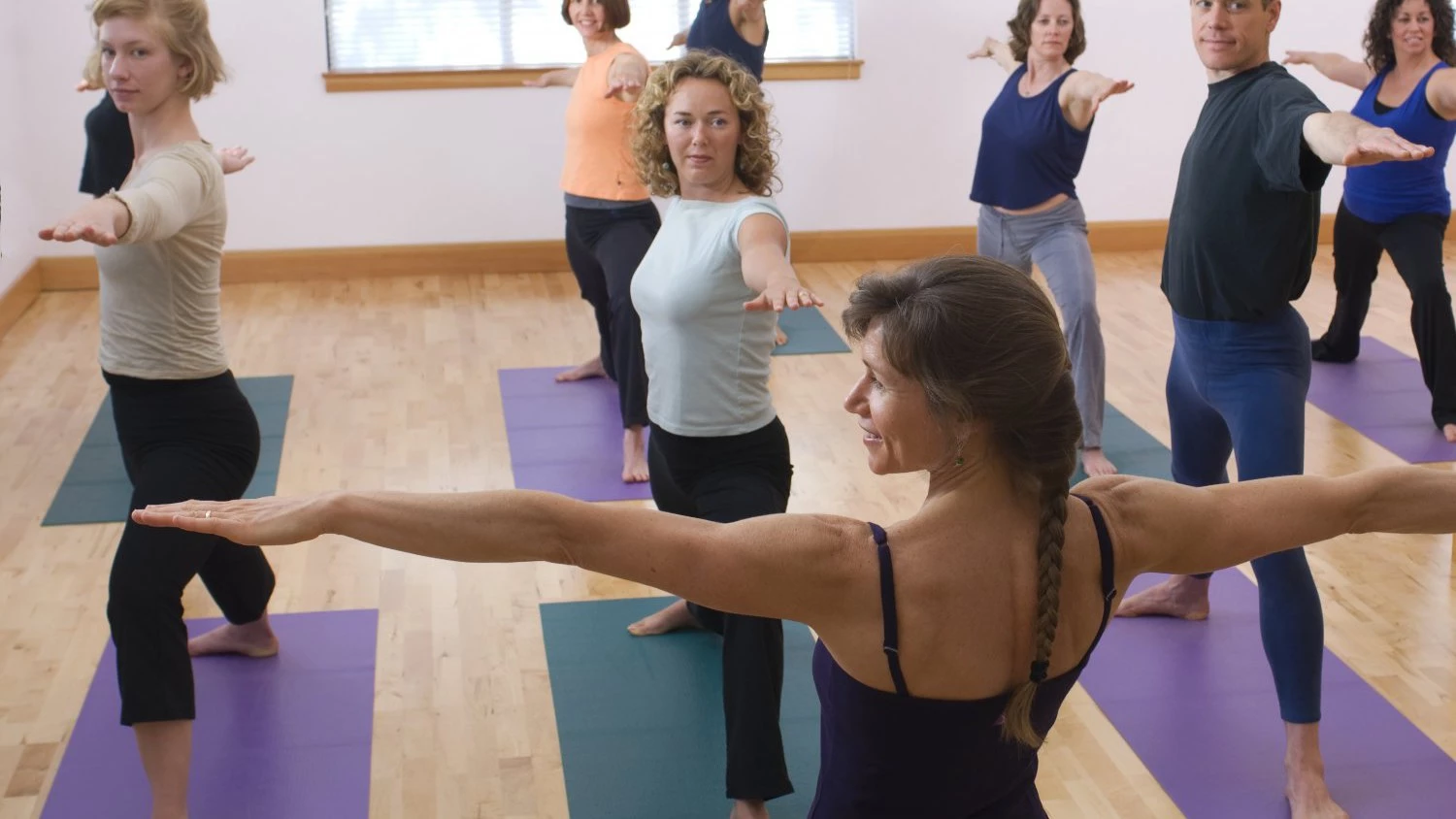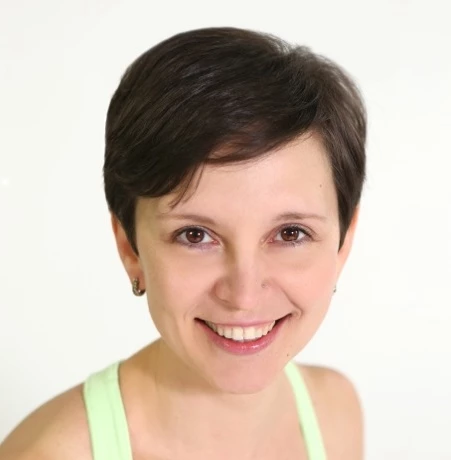How Can You Tell Whether Your Yoga Teacher Knows What She is Doing?

Nowadays everybody seems to be an expert on everything. For example, I am amazed at the number of tweets routinely featured and quoted in media even if they come from people with no measurable expertise on the subject. In yoga it often translates into branding – anybody can name their particular offering and market it to the public. But then the question comes up – how do you know whether or not your yoga teacher knows what she is doing? Does training matter? Does experience matter? Is it more of a gut feeling?
Many of us have gone through extensive (or not so extensive) teacher trainings and began to identify with a particular tradition/lineage. Is that good or bad? Here is an interesting and provocative quote by Matthew Remski from his blog post about Krishnamacharya/Desikachar lineage: “Things might be simpler if we just ditched the language of lineage altogether. Honestly: there are no real “lineages” in modern yoga. There are movements, art forms, brands, celebrities, and memes. Ideas float, combine, change, and disappear. Irony: Krishnamacharya himself was a syncretist, a bricoleur – sewing together a tapestry of Vedic, Tantric, and Hatha influences, collecting techniques from Lanka to the Himalayas. Who was around in his day to crown him “authentic”?” (there are plenty of other interesting ideas in this post).
I personally believe that it is bad if we begin to view other lineages as ”lacking” or “wrong.” It is also bad if we get caught in the orbit of the living guru who presides over the tradition, since we know (from recent yoga scandals) that those gurus are not immune to the corruption of power and overinflated ego. But on the other hand, being connected to a particular lineage gives you a reference point, a particular way of viewing the world.
Let me use my own example. Over the years I’ve attended multiple yoga teacher trainings, workshops, seminars, you name it with many respected teachers. They certainly educated my teaching and laid the foundation for my knowledge. But only when I discovered Viniyoga and Gary Kraftsow I was able to pull all that knowledge together into the framework that explained how things worked. It’s similar to a kaleidoscope – at the first glance it’s just a collection of sparkly multicolored glass and then you turn it a certain way and all of the sudden you can see a pattern that forms a complete picture. It was like that for me with Viniyoga. And I believe that until you find a tradition that “clicks” that kaleidoscope, you are stuck with a collection of random pieces of knowledge that is useful, but incomplete.
To be honest, I am growing a bit weary of this notion that you can somehow learn yoga by osmosis, especially when it comes to yoga teachers. I think this idea is largely responsible for the fact that yoga as a discipline is not being taken seriously. Imagine: next time when you board the plane, your pilot tells you over the speaker: ” Folks, I’ve actually never flown a plane before, but I’ve read a book about it, saw it in on TV and I have an iPad app – so buckle up!” How reassuring would that be? I do not understand why yoga should be held to lower standards than any other profession. One does need to study it.
Now how important is practical experience? Again, it is similar to any other skill – you have to do it for 10,000 hours to start becoming proficient. That’s about 5 years of doing it full time. There is a fabulous book Outliers by Malcolm Gladwell that has a chapter titled “The 10,000-Hour Rule” that explores just that. It’s trickier for yoga teachers because we need to have both practitioner’s and teacher’s experience. Does this mean that you don’t count as a yoga teacher until you reach that 10,000 hours mark? Of course not, you have to gain your experience somehow. But I would discourage you from teaching other teachers until you get those hours under your belt. We often see yoga teachers graduating from a yoga teacher training and then immediately starting their own trainings – without the experience they ring hollow.
How about that “gut feeling”? Also very important. The teacher might have all the credentials imaginable, yet you find yourself counting minutes till the end of the class. May be it’s her style of teaching, her language, her voice – whatever – that doesn’t resonate with you – fine! It’s perfectly OK to dislike a yoga teacher or what she offers. Move on, there is plenty of fish in that pond. Of course, initial impressions might not turned out to be accurate, but if you are still counting minutes after 10 classes, it’s time to find someone else.
Now a few words about what a good teacher MUST POSESS:
Your yoga practice MUST be about you, the student. This is not the time for your teacher to show off her perfect Dhanurasana (unless it’s a legitimate demonstration for your benefit). If your yoga teacher spends too much time looking at herself in the mirror during class – move on.
Your yoga teacher MUST be able to explain every single thing she teaches. Why do we do this pose? Why do we do it this way and not the other way? Why did she choose this breathing practice? Why did she place it at the end of the practice and not at the beginning? There should be a reason for everything and it should be clearly articulated. Using the “mystery” of yoga as an explanation is not valid. If the only reason your yoga teacher gives you is: “Because my guru said so” – move on.
Your yoga teacher MUST be able to adapt the practice to you. Are you pregnant? Older? Recovering from an injury? Whatever it is, she must be able to accommodate you, not the other way around. Sure, it’s harder in a class of 50+people, but she can at least give you options. I took a class at a resort once, where it was just me and one other student. I didn’t have any physical concerns, the other student had a cast on her foot, so clearly she had limitations. For some reason the teacher chose to accommodate me, instead of her, so I felt incredibly bad when I saw the other student struggle through standing poses and multiple pigeons – neither of us had a good time. We might think that accommodating those with different needs will take something away from other students, but I think it’s the other way around – it enriches their experience. So if you can’t keep up with your yoga teacher and find yourself struggling – move on.
I believe that this quote by Mark Whitwell brings up some very valid points:
Here is a guide to finding a suitable teacher: he or she will have three simple, but rare qualifications.
1. They practice yoga themselves.
2. They have had a good teacher themselves.
3. They care about you and are not arbitrarily imposing a standard practice, philosophy or culture on you.
The teacher is a friend. With no roles being played it becomes apparent that student and teacher are obviously equal and share the same condition. Be cautious of anyone who cannot be this ordinary.
What other qualities do you think a good yoga teacher needs to possess?
Reprinted with permission from SequenceWiz
 Educated as a school teacher, Olga Kabel has been teaching yoga for over 14 years. She completed multiple Yoga Teacher Training Programs, but discovered the strongest connection to the Krishnamacharya/ T.K.V. Desikachar lineage. She had studied with Gary Kraftsow and American Viniyoga Institute (2004-2006) and received her Viniyoga Teacher diploma in July 2006 becoming an AVI-certified Yoga Therapist in April 2011. Olga is a founder and managing director of Sequence Wiz- a web-based yoga sequence builder that assists yoga teachers and yoga therapists in creating and organizing yoga practices. It also features simple, informational articles on how to sequence yoga practices for maximum effectiveness. Olga strongly believes in the healing power of this ancient discipline on every level: physical, psychological, and spiritual. She strives to make yoga practices accessible to students of any age, physical ability and medical history specializing in helping her students relieve muscle aches and pains, manage stress and anxiety, and develop mental focus.
Educated as a school teacher, Olga Kabel has been teaching yoga for over 14 years. She completed multiple Yoga Teacher Training Programs, but discovered the strongest connection to the Krishnamacharya/ T.K.V. Desikachar lineage. She had studied with Gary Kraftsow and American Viniyoga Institute (2004-2006) and received her Viniyoga Teacher diploma in July 2006 becoming an AVI-certified Yoga Therapist in April 2011. Olga is a founder and managing director of Sequence Wiz- a web-based yoga sequence builder that assists yoga teachers and yoga therapists in creating and organizing yoga practices. It also features simple, informational articles on how to sequence yoga practices for maximum effectiveness. Olga strongly believes in the healing power of this ancient discipline on every level: physical, psychological, and spiritual. She strives to make yoga practices accessible to students of any age, physical ability and medical history specializing in helping her students relieve muscle aches and pains, manage stress and anxiety, and develop mental focus.



